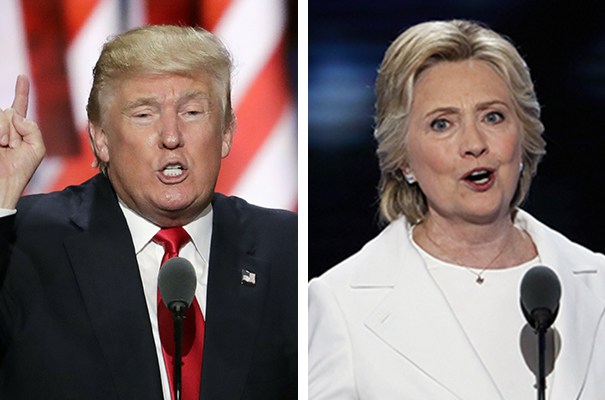What should be the U.S. role in the world?
In the current election cycle, the debate on this vital question is especially focused on America’s military interventions — interventions in Afghanistan, Iraq, Libya, Yemen, Somalia, and hesitation in Syria — which provide some indicators for reflection. As both presidential candidates have spoken on the topic, it is essential to review their positions.
Donald Trump is usually described as a champion of non-intervention and Hillary Clinton the opposite. The New York Times’ Maureen Dowd described the candidates as “Donald the Dove, Hillary the Hawk.”
As a broad generalization, this is perceived as an accurate portrait, but the record is not so clear, especially in Trump’s case. In his March interview with The Washington Post’s editorial board, Trump questioned the need for the North Atlantic Treaty Organization (NATO) and the United States’ continued involvement in it. This he has reiterated on several occasions.
Trump suggested to The New York Times that he might withhold military assistance to defend the Baltic countries — Estonia, Latvia and Lithuania — from invasion by Russia, unless the countries under attack have fulfilled their pledge to spend at least 2 percent of their GDP on defense. This despite the unqualified assurance in the NATO treaty that an attack on one NATO member is an attack on all, and all members will come to the aid of one under attack. Just as Trump has questioned the U.S. commitment to NATO, he has also wondered about the benefits from our involvement in Asia.
Trump fervently opposes nation-building and regime change, and considers all U.S. military alliances as burdens. His prior statements show that he has supported many foreign policy decisions he now lambastes. To illustrate, in the past, he has favored intervention in Syria to create safe zones. He endorsed the ouster of Saddam Hussein and he never opposed the Iraq war until after it had begun. In 2007 and 2008, he often spoke favorably about the U.S. withdrawal from Iraq, which he now calls a mistake; the same applies to Afghanistan. He also called Egyptian President Hosni Mubarak’s removal “a good thing.” Similarly in Libya he supported the overthrow of Moammar Khadafy.
John Noonan, an adviser to Jeb Bush on national security, and dozens of Republican foreign policy experts signed onto a letter describing Trump’s policies “wildly inconsistent and unmoored.”
As to Clinton, Mark Landler wrote in The New York Times Magazine about Clinton’s “appetite for military engagement abroad,” based upon her “foreign policy instincts … grounded in cold realism about human nature.”
She is perceived as a person who believes in displays of force. Her firm support for the intervention in Libya and persistent, albeit unsuccessful, efforts within the Obama administration to provide meaningful support to the rebels in Syria at the outset of the civil war, are well known. She, too, favors safe zones there. Even after the tragic events in Benghazi, Libya, on Sept. 11, 2012, in which Ambassador J. Christopher Stevens lost his life, she stoutly defends the Libyan intervention as justified. Now that the U.S. is using airstrikes in support of the U.N.-backed central unity government in Libya, she endorses this action, as well.
No matter who is the next president, the U.S. cannot disengage from the world. Granted, there are limits to U.S. power to spread
and freedom — and it is widely acknowledged that America is already spread too thin to be effective in many places. But there is no denying the fact that America must play an important role in the world and it is critical that it use military power not only in the defense of national interests, but also in concert with others when atrocity crimes — such as genocide, war crimes, crimes against humanity and ethnic cleansing — occur.
America must firmly support the evolving international law doctrine of every state’s responsibility to protect human lives from these crimes, no matter where they are committed.
To send a letter to the editor about this article, submit online or check out our guidelines for how to submit by e-mail or mail.
This article was originally posted by Ved Nanda as a Denver Post OpEd which can be found here.


